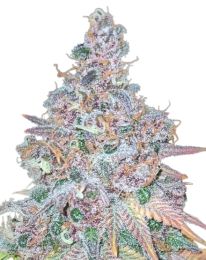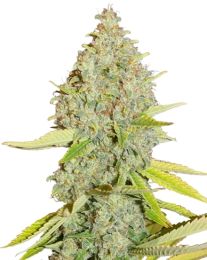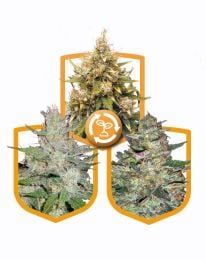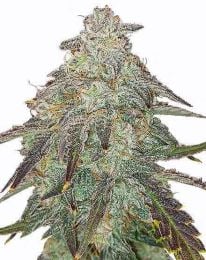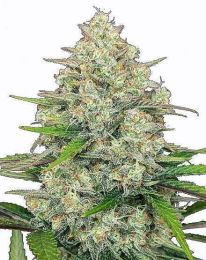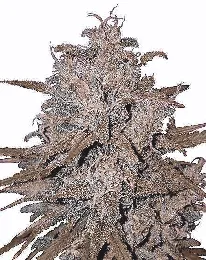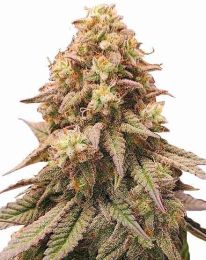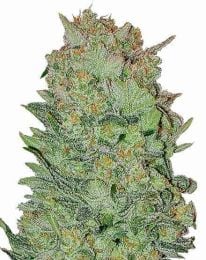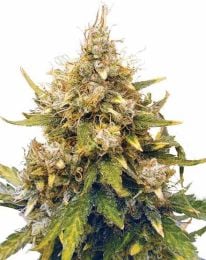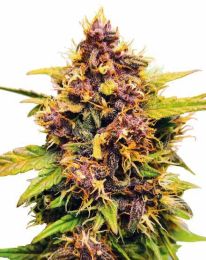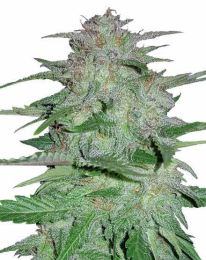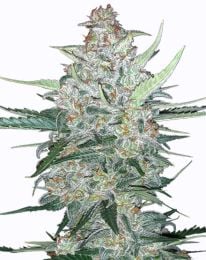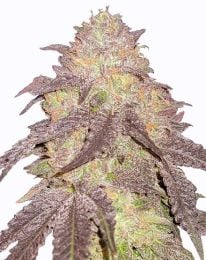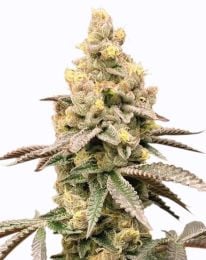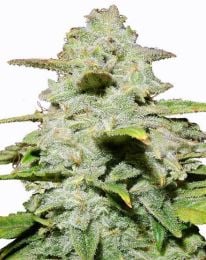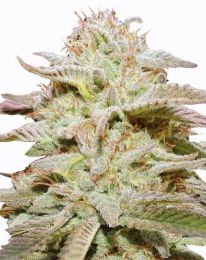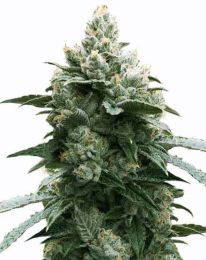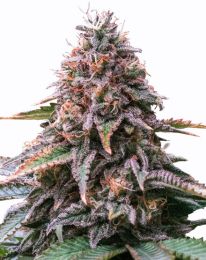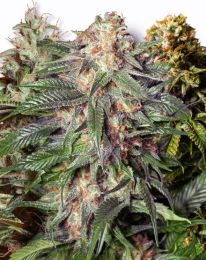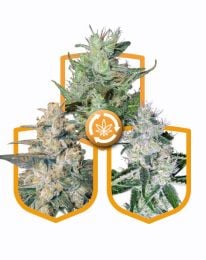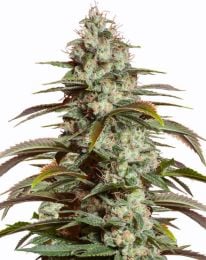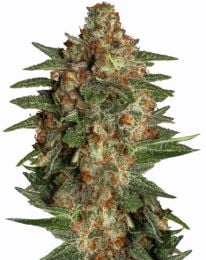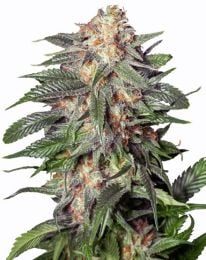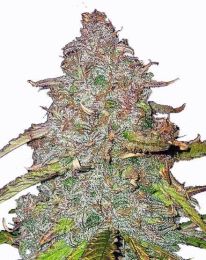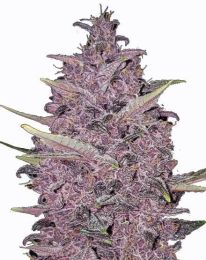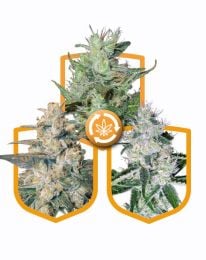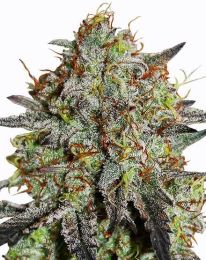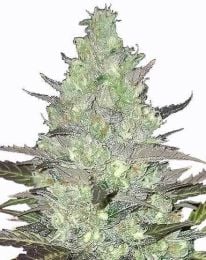Auto flowering Marijuana Seeds
We stock a wide range of autoflower seeds, from high THC to high yielding plants. At MSNL we’ve got an autoflowering strain for every grower. Their ability to flower without changing light cycles offers growers a unique advantage. Autoflower seeds allow for a faster turnaround, are more space efficient and easy to grow.
Read MoreWhat are autoflower seeds?
Autoflower seeds are a cross of a ruderalis strain with either a sativa or indica. Cannabis ruderalis are able to flower without a change in light cycle. This is where the 'autoflowering' trait originates from. Thanks to the reduced growing time autoflowers take 8-14 weeks to grow from seed to harvest. The resulting plants are between 60 -150cm in height with an average yield of 30 - 100g per plant.
What are the different types of autoflower seeds?
Sativa Autoflower seeds
Sativa autoflowers have a dominant cannabis sativa gene. The resulting plants grow taller and with a longer flowering period. You can expect sativa autoflowers to reach between 100-150cm in height.
The high from sativa autoflowers is often described as uplifting, cerebral, and energizing.
Indica Autoflower seeds
Indica autoflowers have a dominant cannabis indica gene. This gives them typical indica traits such as a short, bushy structure with fatter fan leaves. This makes them ideal for indoor grows with limited space.
Indica autoflowers provide a relaxing high that offers sedation and relief from stress.
Pros of growing with autoflowering seeds
Faster Flowering Time:
Autoflowers grow from seed to harvest in as little as 8 to 12 weeks. This faster turnaround allows you to produce lots of harvests in a single season.
No need to change the light cycle:
Without the need to adjust light cycles, growing autoflowers is more straight forward. Having a continuous 18/6 or 20/4 light cycle allows you to begin your next crop of autos in the same tent. Thus, creating a seamless stream of plants ready for harvesting.
Smaller Size:
Autoflowers are smaller, which makes them ideal for indoor grows with limited space. Their compact size also makes them easier to maintain and grow on the low-down.
Autoflowers are hardy:
Ruderalis plants are native to cold regions such as Siberia. Autoflowers inherit the hardiness that allows them to survive in harsh, cold climates. This robustness makes them a great choice for novice growers or those in cooler climates.
Cons of growing with autoflowering seeds
Lower Yielding:
The trade off of the short growing time is that autoflower plants produce smaller yields.
More Risk Involved with Training Techniques:
Because of the short vegetative stage, there is less time to recover from any stress. This means that autoflowers are not suited to HST methods such as topping and fimming. You can use HST methods on autoflowers, although there is an increased risk of damaging the plant.
Less Potent:
Autoflowering strains have lower THC levels when compared to their photoperiod version. Yet, don't let this deter you, as some of the most potent autoflowering strains can produce THC levels of 20-25%.
What is the best way to germinate autoflower seeds?
The best way to germinate autoflower seeds is by using the paper towel method. To germinate your autoflower seeds this way follow these simple steps.
1. First, moisten a paper towel without soaking it.
2. Place your seeds on the towel and fold it over.
3. Next, place this in a plastic bag or between two plates to maintain humidity.
4. Store in a warm, dark place. Within 24-72 hours, the seeds should sprout.
5. Once the taproot is visible, gently transfer the seeds to your growing medium. Make sure you plant the taproot downwards.
6. In soil bury the seed around 0.5 to 1.5 inches deep under lightly packed soil.
7. Keep the growing medium is moist and maintain a warm temperature for optimal growth.
8. Keep the temperature to around 77 degrees and ensure that the pH is between 5.8 and 7.
Top tips for growing autoflower seeds
Use Quality Lights: Invest in good quality LED grow lights. Autoflowers generally need 18-24 hours of light per day, so good lighting is essential.
Optimize Light Schedule: Keep lights on for at least 18 hours a day. The optimal lighting schedule is a 20 hours on, 4 hours off schedule for best results.
Control Environment: Maintain a temperature range of 68-77°F (20-25°C) and a relative humidity of around 40-60%. Use fans and dehumidifiers if necessary.
Nutrient Management: Start with a mild nutrient solution and gradually increase it as the plant grows. Autoflowers don’t need as much nutrients as photoperiod plants. Make sure you keep the nutrients to about a quarter of normal photoperiods.
Use good soil: Opt for a light and airy potting mix. Avoid nutrient-dense soil and mixes that are heavy in time-released nutrients.
Choose the best outdoor location: Autos are perfect for outdoor growers because they grow fast and remain short. This makes them easy to conseal and maintain. Choose a spot that gets a good amount of light, had some protection from wind and from some pests.
Avoid Transplanting: Start your seeds in their final container from day 1. Autoflowers don't like the stress that is when you transplant them.
Low-Stress Training (LST): If you want to train your plants, use LST methods. Avoid high-stress techniques as autoflowers have less recovery time.
Monitor Watering: Overwatering can be detrimental. Water your plants when the top inch of soil is dry. Make sure your pots have good drainage.
Harvest Gradually: Autoflowers might not mature uniformly. Harvest the buds that look ready first, and give the others more time. This technique is called staggered harvesting.
FAQ
How long do Autoflowers take to grow from seed?
Autoflowers take 8 to 14 weeks to grow from seed to harvest.
Are autoflower seeds good for beginners?
Yes, autoflower seeds are great for beginners. They are smaller in size making them easier to maintain indoors. They have faster veg and flowering times, and are more resilient to cold weather.
What is the easiest autoflower seed to grow?
There are several easy to grow autoflowering strains. The easiest strains to maintain are Lowryder, Northern Lights Auto, and Auto Caramelicious. These strains are also known for their robustness and forgiving nature.
Are autoflowers better than feminized (photperiods)?
The choice between autoflower and feminized seeds depends on your personal preferences. Autoflower seeds offer faster harvests and convenience. Whereas photoperiods are much larger plants, but can take up to 25 weeks to grow from seed harvest. When growing indoors autoflowers are the more popular option. Although photoperiods are the more popular choice for outdoor grows.
What is the average yield of an autoflower?
Autoflower yields vary depending on genetics, growing conditions, and cultivation techniques. On average, autoflowers produce between 30 to 100 grams per plant. Although larger varieties can yield up to 200 grams in ideal conditions.
How long do Autoflowers spend in flower?
Autoflowers spend 5 to 8 weeks in the flowering stage depending on the strain.
Do Autoflowers need darkness?
Yes, autoflowers can tolerate 24 hours of light. But, providing 4-6 hours of darkness allows the plants to rest and reduces the risk of stress.
Can you put Autoflower seeds straight into soil?
Yes, you can plant autoflower seeds into soil or any other growing medium. They don't need a separate seedling stage. But you should plant autoflowers in their final pot from day 1 to avoid transplanting them.
What is the most potent Autoflower strain?
Gorilla Glue, Bruce Banner and Do Si Dos autoflower are all capable of producing THC of up to 25%.
What is the fastest flowering autoflower?
The fastest flowering autoflowers are Runtz, Do Si Dos and Cherry Pie Auto. They can flower in as little as 6 weeks.
Are all autoflowers female?
All the autoflowers that we sell are females, which means the risk of growing male plants is slim. Regular autoflowers, but, the demand for them is so low that they are rare.
How long does it take autoflower seeds to germinate?
Autoflower seeds germinate in the same way as ordinary cannabis seeds. They normally take 1-3 days to germinate.
